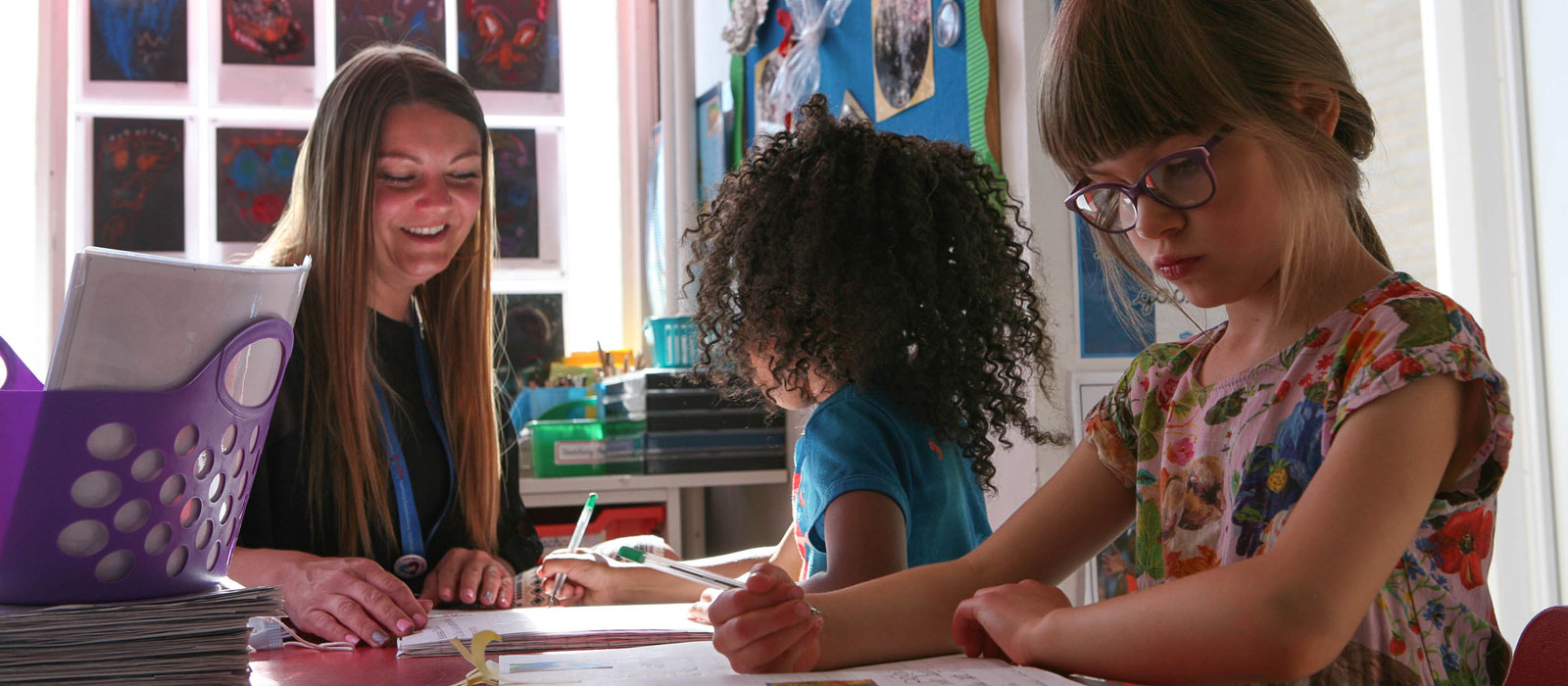Maths
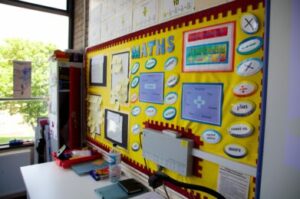
At Fairlawn, we strive to put the magic into learning so that pupils develop mathematical fluency, reasoning and problem solving skills, and of course a love of number! We promote a love and enjoyment for maths and believe that all children can achieve.
Maths Policy
Fairlawn Calculation Policy for families
Intent
At Fairlawn, we strive to put the magic into learning so that pupils develop mathematical fluency, reasoning and problem solving skills. We promote a love and enjoyment for maths and believe that all children can achieve.
Our vision for the teaching and learning of mathematics at Fairlawn Primary School is underpinned by the principles of “mastery”. Our intention is:
- to provide stimulating and engaging maths lessons which meet the needs of all children;
- for children to have a resilient and positive ‘can do’ attitude towards mathematics;
- for children to become fluent in the fundamentals of mathematics, so that pupils
develop conceptual understanding and the ability to recall and apply knowledge rapidly and accurately; - for children to develop a range of mental and written strategies, selecting the most efficient method when answering questions;
- for mathematical language to be embedded throughout our curriculum;
- for children to reason mathematically by following a line of enquiry, conjecturing relationships and generalisations, and developing an argument, justification or proof using mathematical language;
- for children to solve problems by applying their mathematics to a variety of problems with increasing sophistication, including breaking down problems into a series of simpler steps and persevering in seeking solutions;
- to provide opportunities for children to make connections between mathematical concepts;
- to have the CPA approach built-in to our lessons, using a range of models and manipulatives to develop both procedural fluency and conceptual understanding.
Implementation
At Fairlawn Primary School, we use a mastery approach in the planning and teaching of maths. Our maths curriculum is designed to develop children’s knowledge and understanding of mathematical concepts from Early Years Foundation Stage through to the end of Year 6. We use the expectations outlined in the National Curriculum, the DFE Ready to Progress Criteria and the NCETM Prioritisation Curriculum to ensure coverage and progression in mathematical knowledge and skills across the school. This allows pupils to build a deep understanding of concepts, which will enable them to apply their learning in different situations. Please see our KS1 and KS2 curriculum progression below.
KS1 and KS2 Fairlawn Curriculum Progression
At the beginning of the year, each year group teacher is given a long-term overview of the mathematics units for the year (see example below). This ensures all concepts are built on previous knowledge to ensure foundations are fully secure. Children spend longer on key mathematical concepts, most noticeably number. Significant time is spent developing deep knowledge of the key ideas that are needed to underpin future learning. These documents have been designed with the guidance of the National Curriculum, NCETM Prioritisation Curriculum, DFE Ready to Progress criteria and White Rose SOL. Our curriculum is flexible on timings to ensure we meet the needs of all children. There are opportunities planned throughout the curriculum to revisit previous learning to ensure it is deeply embedded in pupils’ memories.
Within the curriculum maps, each unit is broken down into small, logical steps, enabling connections to be identified and built upon. These steps are explored through clear mathematical representations and real life contexts.
Nursery curriculum
Reception curriculum
Year 1 curriculum
Year 2 curriculum
Year 3 curriculum
Year 4 curriculum
Year 5 curriculum
Year 6 curriculum
We use the NCETM’s ‘5 Big Ideas’ to support the planning and teaching of maths.
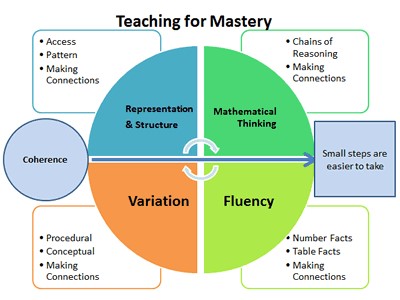
Fluency
Fluency
We place a strong emphasis on mental calculation. Key facts, such as multiplication tables and addition facts within 10, are learned to automaticity to prevent cognitive overload in working memory, allowing pupils to focus on new concepts. We aim to develop children’s understanding by connecting new knowledge with existing knowledge. Additionally, we hold extra fluency sessions each week. We continue to use ‘Mastering Number’ in Reception and KS1 and are excited to introduce KS2 Mastering Number in Years 4 and 5.
Maths lessons
Daily maths lessons are delivered though quality first teaching. Children are taught through whole-class interactive teaching, where the focus is on all children working together on the same lesson content at the same time. During these lessons, children are supported to make rich connections across mathematical ideas to develop fluency, mathematical reasoning and competence in solving increasingly sophisticated problems, as well as giving all children the confidence and resilience to achieve this. The 3 aims of the National Curriculum are highly connected throughout children’s learning to ensure children develop conceptual and procedural understanding.
Fluent in Five
We have a strong focus on developing fluency in arithmetic skills. In Years 3-6, we start each maths lesson with ‘Fluent in Five’. Children are provided with a range of quick, daily arithmetic questions to build number fluency and confidence with mental strategies and written methods to complete in five minutes. It recaps prior learning from the current year and previous year groups.
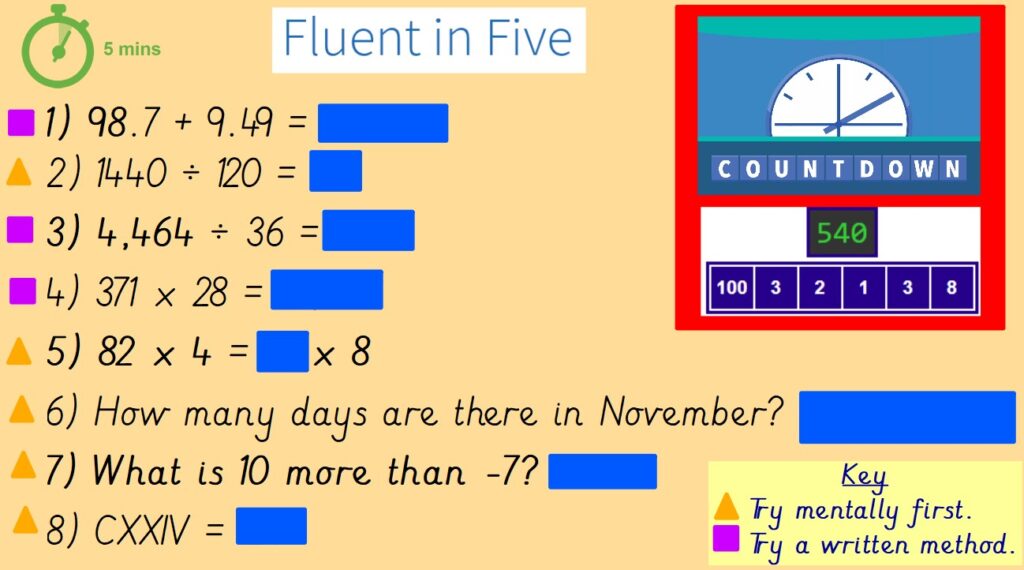
Concrete – Pictorial – Abstract (CPA) approach
There are opportunities for children to develop their understanding of concepts through the use of concrete manipulatives and pictorial representations alongside numbers and symbols – this helps them to visualise, understand new concepts and make connections. Initially, and when appropriate, we provide children with concrete manipulatives and pictorial representations to secure their early understanding of mathematical concepts. Careful planning goes into what the most appropriate representations are used to develop children’s conceptual understanding. Children are given lots of opportunities, to discuss, explore, practice and apply mathematical concepts using these resources. We carefully consider when these manipulatives and representations are removed so children can develop automaticity of the concepts.
Language in Mathematics
During maths lesson there is a focus on the acquisition of mathematical language so, where appropriate, generalisations and stem sentences are generated. These are then displayed around the classroom to support future learning. This also supports the children when they are reasoning and justifying their answers in problem solving, as they can explain their understanding using correct mathematical language.
Vocabulary Poster
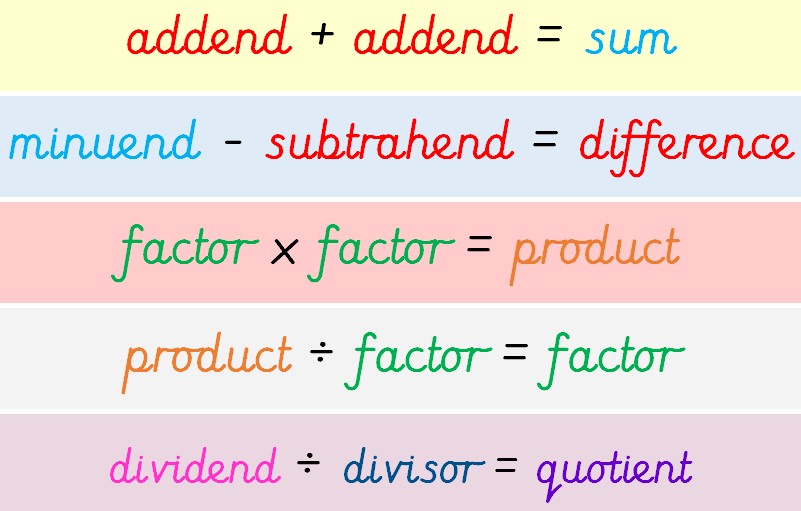
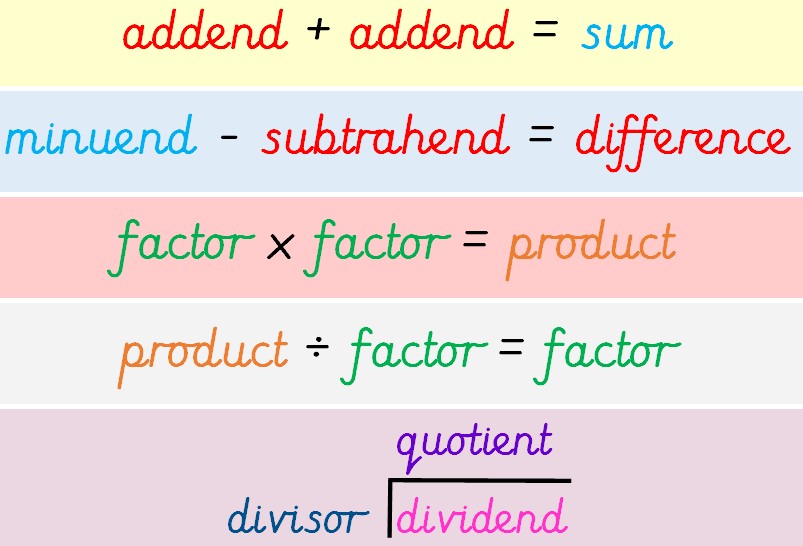
Examples of STEM sentences

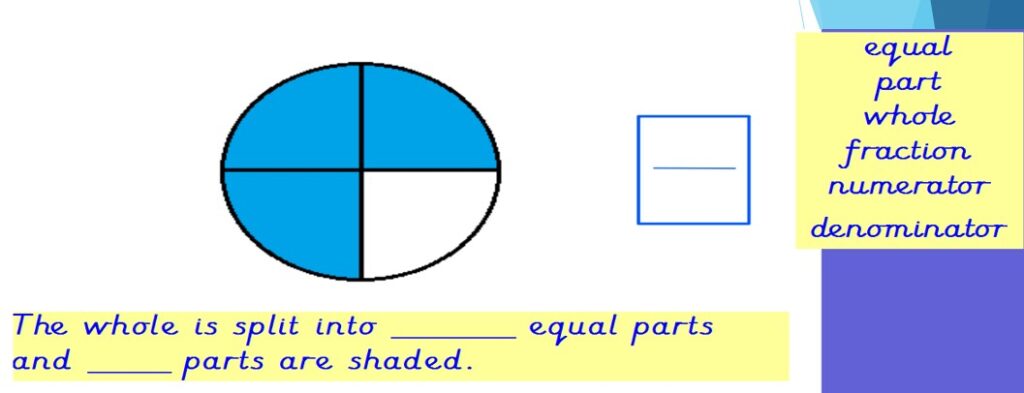
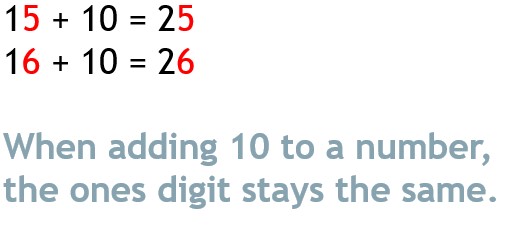
Vocabulary and STEM sentences are also displayed on flipcharts and independent learning sheets.
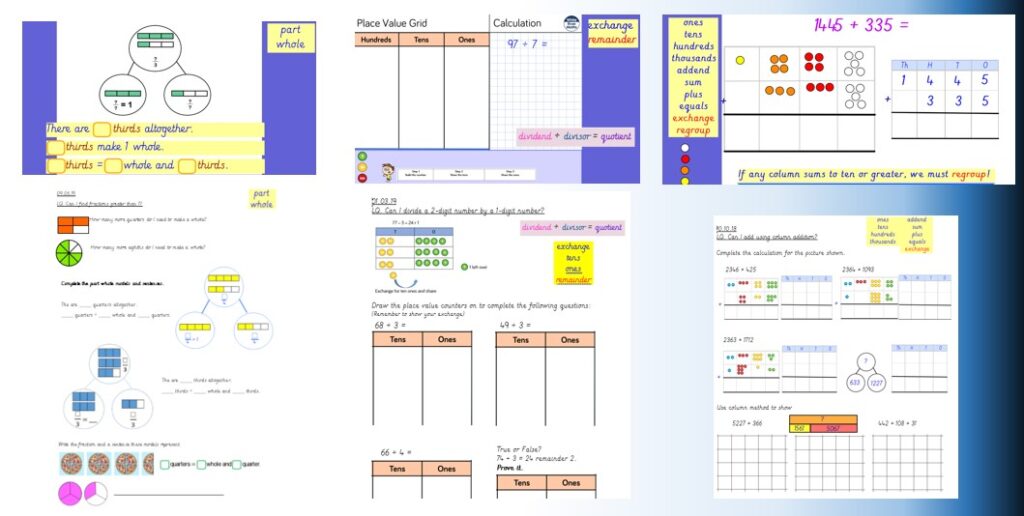
Models, vocabulary and STEM sentences will also be displayed on learning walls for children to refer to.


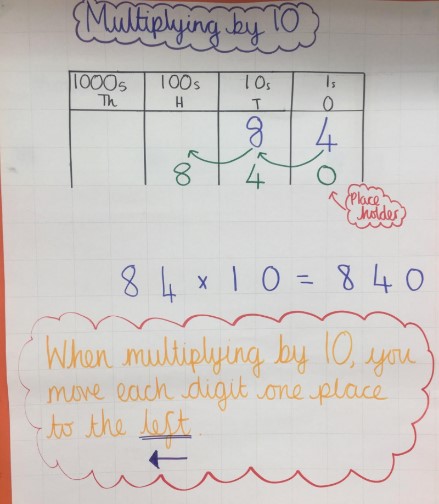
Meeting the needs of all
At Fairlawn, we are an inclusive school, that is creative in supporting children to access the learning in class, providing adaptations where needed. Support or early intervention is provided for children who do not grasp a concept, and challenge (rather than acceleration) is provided for those children who can explore concepts at greater depth. These children are challenged to reason at a greater level that is required or with a rich and sophisticated problem when appropriate. Furthermore, at Fairlawn we do not “set” for maths lessons.
Assessment:
Summative Assessment
Regular, ongoing, and end-of-term assessments support teachers in tracking pupil progress. We use our own End of Unit and End of Term assessments, incorporating NCETM assessment questions (which align closely with the RTPs), Testbase and White Rose end-of-block assessments. These tools help identify learning gaps and ensure that pupils have grasped concepts at an appropriate level of depth. Teachers can use these assessments to pinpoint gaps in pupils’ knowledge, support future planning and provide targeted interventions.
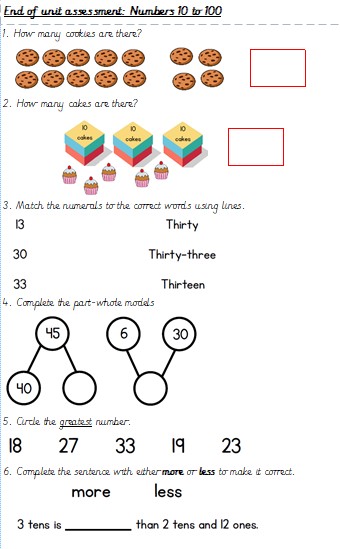
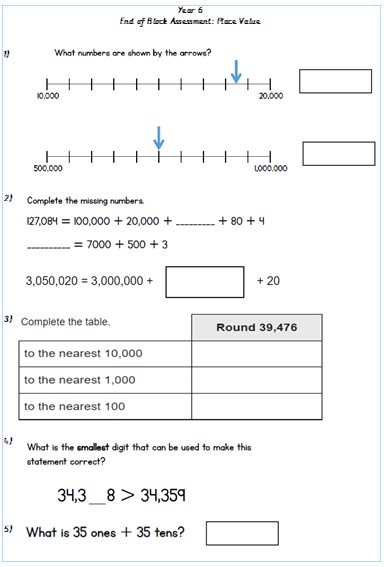
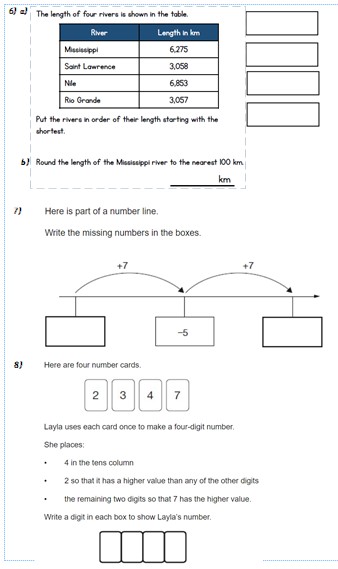
These assessment are used to support teachers’ judgments on pupil progress and attainment.
Formative Assessment
Where appropriate, pupils will engage in self-marking with a calculator and/or peer-marking during the lesson. Teachers and TAs will also mark learning throughout the lesson, either individually or with the whole class. This provides instant feedback, allowing pupils to address errors and misconceptions immediately. It also offers teachers a clearer picture of pupil progress both during and at the end of the lesson. These in-class assessments help inform planning for future lessons.
When marking, we use a Green Pen Learning (GPL) stamp to address misconceptions or expand on reasoning where necessary.

Maths books
Our maths books demonstrate what children have learned both individually and independently. They show whether pupils have understood a taught concept and the depth of their understanding. This helps us make informed decisions for future planning, such as re-teaching a concept in a different way or progressing to the next step in learning. Not every lesson will have evidence in children’s books. Sometimes, especially at the beginning of a lesson sequence, we focus on concepts as a class using concrete resources and may not record in the books.
The learning evidenced in the books is progressive and shows both conceptual and procedural variation. In the books, you should also be able to see that some children have received more support, while others are challenged to reason at a greater depth.
Interventions
When possible or necessary, children may receive a same day or next day intervention. These interventions are fluid and rapid, ensuring that children’s misconceptions are dealt with as soon as possible.
Home learning
At Fairlawn, we believe that home learning should be enjoyable, collaborative, interesting and challenging. Home learning should not be stressful or onerous and should not lead to conflict between children and parents. We encourage and support our parents to enrich their children’s maths learning through promoting a love of maths outside of school. It is important that children see the connections of maths in their everyday lives. A range of ideas can be found on our parent handout packs found on our school website.
In Key Stage 1 and 2, we set weekly home learning for maths. The home learning will be a consolidation of what the children have been learning in class.
We also also subscribed to TTRockstars and Numbots to encourage pupils to practice their mental maths skills.
Continued Professional Development
At Fairlawn, we provide professional development for all staff that focuses on subject and pedagogical knowledge. Professional development is ongoing and is delivered in school through INSETs, staff meetings, team planning and team teaching. We also use the NCETM Professional Development materials to help develop teacher subject knowledge and enable teachers to deliver teaching for mastery with confidence. Additionally, we engage in onging professional development opportunities provided by the London South East Maths Hub.
Impact
The impact of our schools maths curriculum can be seen during learning walks, in children’s maths books and in discussions with our children.
What would you likely see if you were to walk into a KS1 or KS2 lesson?
- Children will be developing understanding of concepts through the use of concrete manipulatives and pictorial representations alongside numbers and symbols – this helps them to visualise and understand new concepts;
- You will notice that questions are carefully planned to ensure conceptual and procedural variation;
- There will be a balance of children and teachers explaining and reasoning mathematically;
- Children will demonstrate a secure understanding of how to reason mathematically, using appropriate mathematical vocabulary and STEM sentences in maths lessons with confidence, ease and accuracy;
- Children will recognise mathematical relationships and connections within concepts;
- You will notice that lessons may appear slower paced to allow children to move through the learning at broadly the same pace, developing a sound understanding as they do so. These lessons are taught in small cohesive steps to ensure they have a deep understanding;
- You will notice that most children are learning the same thing, with support or scaffolds for those learners that need it, and challenge for those that grasp concepts more rapidly when appropriate;
- You will notice that we start each lesson with ‘Fluent in Five’ to revisit arithmetic practice. Previous learning is also included throughout lessons to recap and allow children to make connections with new learning;
- Children will demonstrate a quick recall of facts and procedures, including multiplication and division facts, and apply this knowledge and understanding to real life situations;
- You will see children working in mixed attainment pairings;
- You will overhear teachers and additional adults giving immediate feedback to correct, consolidate or extend the learning.
To find out more about maths mastery and growth mind-set in maths, please download the following handouts:
PEARSON-GROWTH-MINDSET-PARENT-FACTSHEET
PEARSON-MATHS-MASTERY-PARENT-FACTSHEET
NCETM prioritisation curriculum/ NCETM spines/ White Rose SOL/ DFE Ready to Progress criteria have all been used to support the planning, teaching and learning of mathematics.
To access the White Rose Scheme of Learning for Reception, please click on the following link:
https://whiterosemaths.com/resources/early-years-resources/reception-sol/
To access the White Rose Scheme of Learning for Year 1 – 6, please click on the following link:
https://whiterosemaths.com/resources/primary-resources/primary-sols/
To access the NCETM prioritisation curriculum for Year 1 – 6, please click on the following link:
https://www.ncetm.org.uk/classroom-resources/cp-curriculum-prioritisation-in-primary-maths/
To access the Ready to Progress criteria for Year 1 -6, please click on the following link:
Helping your child with maths
Helping your child with maths in the EYFS
Helping your child with maths in the Year 1 and 2
Helping your child with maths in the Year 3 and 4
Helping your child with maths in the Year 5 and 6
How to videos
SHORT DIVISION
LONG DIVISION
LONG MULTIPLICATION
SHORT MULTIPLICATION
COLUMN ADDITION
COLUMN SUBTRACTION



